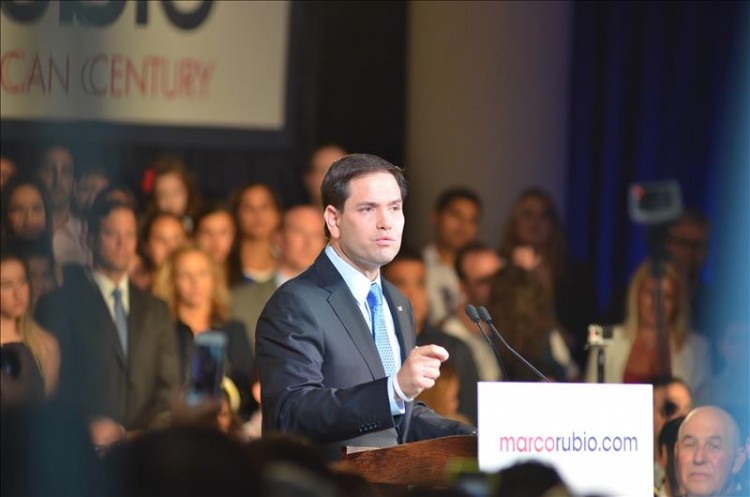
The Cuban Military not so transparent act
Legislation introduced earlier this month by Senator Marco Rubio (FL) – theCuban Military Transparency Act – isn’t transparent at all.
Rather than revealing something about Cuba’s military, the legislation conceals the intent of its authors; namely, to shame, harass, and try to stop every American from visiting Cuba or seeking to do business in Cuba, and to return U.S. policy to its pre-December 17, 2014 goal of starving the Cuban economy and the Cuban people along with it.
Why are the seven Senate sponsors relying now on such desperate measures? A few numbers – 43, 36, and 620,000 – tell the story.
- We can now count forty-three Republican and Democratic Senators who’ve stepped forward to sponsor The Freedom to Travel to Cuba Act, legislation to make it legal for all Americans to travel to Cuba. We congratulate Senators Barbara Mikulski (MD), Patty Murray (WA), and Pat Roberts (KS), the chairman of the Agriculture Committee, for being the most recent among them.
- President Obama’s decision to streamline regulations on purposeful travel to Cuba has galvanized interest across the United States in visiting Cuba. From January 1 to May 9th in 2015, there has been a36% increase by Americans to the island over the same period last year.
- For Cuban Americans who can visit Cuba on an unlimited basis, thanks to regulatory changes by President Obama, travel to the island is rising substantially. According to the Havana Consulting Group, family travel visits could 620,000 in 2015, a record.
This surge in visitors makes a huge difference for Cubans employed in transportation, lodging, restaurants, the owners of restaurants and beds and breakfasts, and the artisans and translators who get payments in hard currency or work in the “tip economy.”
According to 14ymedio, the number of self-employed persons in Cuba exceeded 500,000 for the first time at the end of May 2015, with young people and women benefitting enormously. Studies show that travel and tourism are big drivers of employment and economic growth. As state-owned enterprises like hotels struggle to accommodate increases in tourism, the private sector will, as one analyst reported, fill capacity gaps, especially in the areas of lodging and restaurants, accelerating change in the structure of Cuba’s economy.
The economic reforms under President Raúl Castro enable Cubans to work for businesses that profit from the increase in travel taking place under President Obama’s policy reforms. Many Cubans are earning more money, and interacting and exchanging more with U.S. travelers. This is a virtuous circle producing better lives for Cubans in ways that simply couldn’t happen under 50 years of isolation and sanctions.
Most of us look at this emerging picture and think, “what’s not to like?” In contrast, the Senate sponsors of the Cuban Military Transparency Act see the fifty years of diplomatic isolation and economic sanctions they’ve supported coming to an end. That is why they are acting so desperately.
So, what does their legislation really attempt to do? If enacted into law, it would prohibit a U.S. person from engaging in any financial transactions with Cuba’s Ministry of Defense and Interior Ministry, senior officials employed by them, or entities they own or control.
It’s not a secret that in Cuba, a socialist state with a largely state-owned economy, the military is invested in state-owned businesses, and several of those – as the Senate bill says – are dominant players in Cuba’s tourist industry.
Given the military’s broad role in Cuba’s economy, any expenditure by U.S. travelers and businesses – including the cost of hotel rooms, telephone calls, airport taxes, the hotel occupancy tax, sales taxes on tourist purchases, resort fees – could be prohibited presumptively unless the traveler or company could persuade OFAC they spent their money in Cuba some other way.
How could they prove the negative? Who in Cuba will hand out the forms that say “that hotel room” or “that painting” or “that serving of ropa vieja” didn’t come from an enterprise owned or controlled by Cuba’s military? Of course, the sponsors aren’t interested in compliance with their bill – they simply want to fill Americans with fear so that they don’t pack their bags and go, doing incalculable damage on Cuban families and their prospects for the future.
And let’s be clear: this legislation covers ETESCA, Cuba’s telecommunications company. Should it become law, it would prohibit Google and Facebook from doing business in Cuba. Millions of Cubans waiting for better connections to the Internet could thank the 7 Senate “transparency act” sponsors for that result as well.
If there were a truth-in-naming rule in the U.S. Congress, they could have given this enormously damaging legislation a much more fitting title:
- The No-Freedom to Travel to Cuba Act;
- The Stop Cuban Americans From Visiting their Families in Cuba Act;
- The Smother Free Enterprise in Cuba Act; or even
- The Keep Google and Facebook from Connecting Cubans to the Internet Act
But no such rule in Congress exists, as is transparently the case.
(From: Cuba Central)

